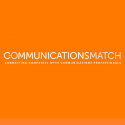Ethics, PR & Artificial Intelligence
PRSA Ethics Month is September. It’s a good time to think about ethics and artificial intelligence, especially with AI being used to generate content, pitch, measure, and even manage the public relations process.

In a new CommPRO.biz article, I note that ethics provides a framework for thinking about the use of AI in ways that will benefit rather than harm the industry over the long term.
I’m not a Luddite. CommunicationsMatch™ is knee deep in the weeds of AI and are looking at building data models and programming that embrace its potential to strengthen our core capability of connecting clients with agencies and professionals.
However, we need to recognize the potential for AI’s dark side. Eyes need to be wide open. The elimination of jobs is likely the least of our concerns.
The temptation to take short cuts is strong when money is at stake. I note: “When incentives distort ethical behavior, we are at risk of chasing “fool’s gold.” As I wrote, in Tunnels & Funnels: Why We Make Bad Decisions & How We can Make Better Ones, it is a fundamental part of human behavior to focus on what we are chasing and lose sight of the broader context. When we go into tunnels we have to stop and look up, to ensure we see the big picture.”
Ethics provide a long-term context and a broader dimension to make decisions that are “right” for our businesses, industry, and society as a whole. They are a guide for action that will ensure the sustainability of individual businesses and the industry over the long term.
I don’t profess to have the answers, but there a number of key questions the industry needs to ask to guide the ethical use of AI:
- What will be the impact of producing content at scale using Chat GPT or other tools to pitch journalists or to enhance SEO?
- Will AI-driven pitching tools enhance journalists’ engagement with PR people, strengthen or damage relationships, and/or lead to journalists tuning out?
- What will be the impact of AI-driven automation of PR industry functions on the professional skillsets of people in the industry?
- How should we think about the use of AI-tools that leverage data, pitches, images or other potentially copyrighted information?
- What will we need to do around inherent biases built into AI to avoid the exclusion of certain groups from the industry?
Since history shows us that ethics is generally a slow follower of innovation and technology, these conversations need to be a priority today.
A key takeaway from the article is the idea that: “The greatest risk of AI for our industry is that we get to a point where the arms race to generate more (pitches, content, automation) will lead to less engagement with journalists, audiences tuning out, and ultimately reputational damage to the industry.”
That said, it does have the potential to create more informed professionals and focused pitches, as welll as smarter research and ultimately stronger human engagement. As with most things, there will be a choice for the path we take.
About the Author: Simon Erskine Locke is CEO of communications agency and professional search and services platform, CommunicationsMatch™. He is a regular contributor to CommPRO.biz and other trade media. His is a former head of Corporate Communications at blue-chip brands, a founder of agencies, a writer and VP of the Foreign Press Association.
